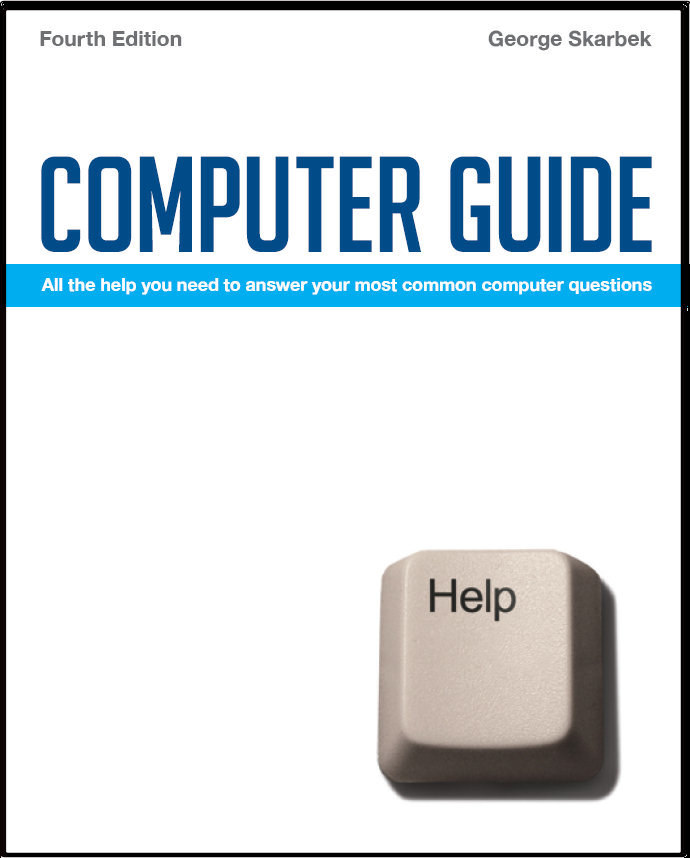

To look at the e-book in PDF format, Computer Guide, based on these columns click here
Q: Do you know where I can find any authority on the time shown on international emails? I sent an email to a friend in the UK. She replied. When I printed off her reply my email was below hers, showing the "sent" time as 5.20 am. I had sent it in my lunch hour at work in Sydney. Due to the 11 or 10 hour time difference, the 5.20 am time must be the UK time I sent my email. But I need proof of this. I personally don’t know any such authorities but the time shown on the e-mail is determined by the sender’s clock. However, time stamps can be faked. If the mail was sent from a company using a central server then the time stamp is usually set their mail server and not by the PC. You can easily do a couple of tests. Set your clock, say, six hours ahead and send yourself an email. Then set the clock to the correct time and check your mail. You will see mail from the future (if your spam filter does not intercept it as many do to prevent spam mail arriving at the top of the list). Setting the clock back say, 11 hours and repeating the test will show mail being 11 hours old. So unfortunately there is no definitive way to determine the exact time that a message was sent. However, generally the PC clocks are quite good and unless you suspect deliberate forgeries, it is reasonable to assume that the time stamps are correct. You can also examine the full header information to track the times as the message passes through all system servers. Microsoft has an article on mail from other time zones. See: http://support.microsoft.com/default.aspx?scid=KB;en-us;q174989 for more details
Hubs, switches and routers Q: Could you please clarify for me, what are the differences between a network hub, a network switch and a network router? Generally with today’s technology there is not much difference between a network hub and a switch. Several years ago the network hub would broadcast the incoming Ethernet signal to all ports on the hub thereby increasing the overall traffic. A network switch has the intelligence built in to build up a table of what computers are on what ports and switches the traffic only to the appropriate port. For example, it you are saving a file to the server, the switch will not broadcast these packets of data to all connected ports but only to the port that the server is attached to. Almost all new hubs are switches as well. A router is quite different as it has its own TCP/IP address and has a lot more intelligence built in enabling it to find the best path between any two networks. A switch can only connect computers in it Local Area Network (LAN). For SOHO use, a router usually has four or five ports will almost always have some firewall software installed and it can be configured to enable or block specific ports and many other aspects.
Is the Flight Simulator slowing down my computer? Q: My computer has been slowing down occasionally and recently my son has loaded the Microsoft Flight Simulator onto my computer. When I investigated how big it is I was amazed at the results. There are about 42,000 files and they occupy 13 GB of disk space. How much slowing down does this cause? My guess the answer is: probably none. This is because the files just remain on the hard disk and are not accessed by any other programs and not loaded into memory. This last step is the most important step that relates to slowing down of the computer as it not only consumes valuable memory but being memory-resident it can become active and consume CPU cycles. For some memory-resident programs such as the anti-virus software it is essential that they monitor files that are being downloaded or being opened. Files on the hard disk just lay there in a dormant state and cannot suddenly slow down the computer. The very large installation of Flight Simulator may have aggregated the disk fragmentation and this can lead to some small slowing down when new files or programs are being loaded so I would recommend that you defragment the hard drive every few months and after a huge installation such as your son did. It is also possible that theses have almost filled your hard disk and with very little free space (below a couple of hundred MB) there may be other problems. To find out why things slow down, I suggest that you look at what programs start up automatically at boot time and prevent loading the ones that are not regularly required. To do this click on Start, Run and type MSCONFIG and look in the Startup tab and remove the tick from programs that you do not think need to be loaded into memory all the time. If you cannot guess what some programs are use Google to find out by just entering the name of the program. |